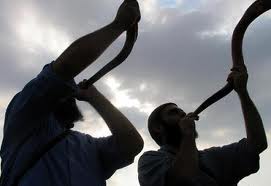Rosh Hashanah & Yom Kippur
The Meaning of High Holy Days
Rosh Hashanah, which literally means “head of the year,” marks the Jewish New Year. It is a time when we return to our promises of last year, contemplate our efforts, pray for God’s mercy, and begin with courage for the year to come. On Rosh Hashanah, we hear the sound of the Shofar, offer up prayers for the coming year and come together as a community. On Rosh Hashanah, the word “Teshuvah,” meaning “return,” reminds us that we come back to the same place, not in an exact circle but rather a spiral, as we continue to grow in our lives.

Ten days later comes Yom Kippur, considered the most important holiday in the entire Jewish calendar. Yom Kippur is a great day of introspection and atonement. It is the day when we say we are sorry to those whom we have wronged during the year and to ourselves for things that we have done. As Jews, we find it amazing that built into the very fabric of our community is a day devoted to saying we are sorry. We are supposed to “turn around” (Teshuvah) and promise to not do it again.
The great Jewish philosopher Maimonides explains that true Teshuvah comes not just by saying you are sorry or promising to not make the same mistake twice, but by living out those promises and not making the same mistake again. Since Yom Kippur is a day of introspection, it is customary, for all those who are able, to fast. By refraining from food we are better able to focus on the lofty, powerful and truly awesome concerns of the holiday season. Yom Kippur concludes with a service of Yizkor, memory, for all those in our lives who have died. A break-the-fast celebration where we celebrate having made it through this season follows the concluding service.
